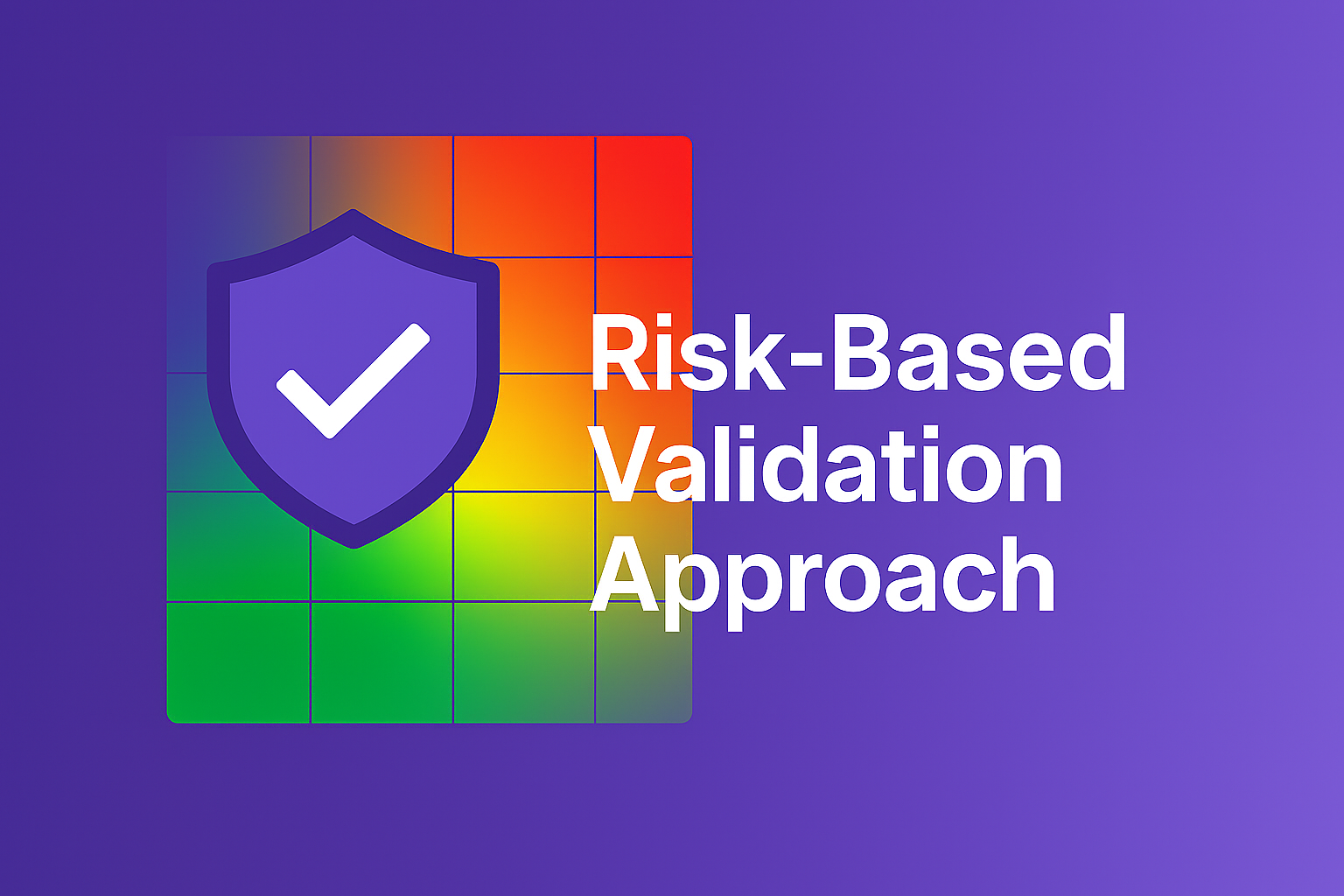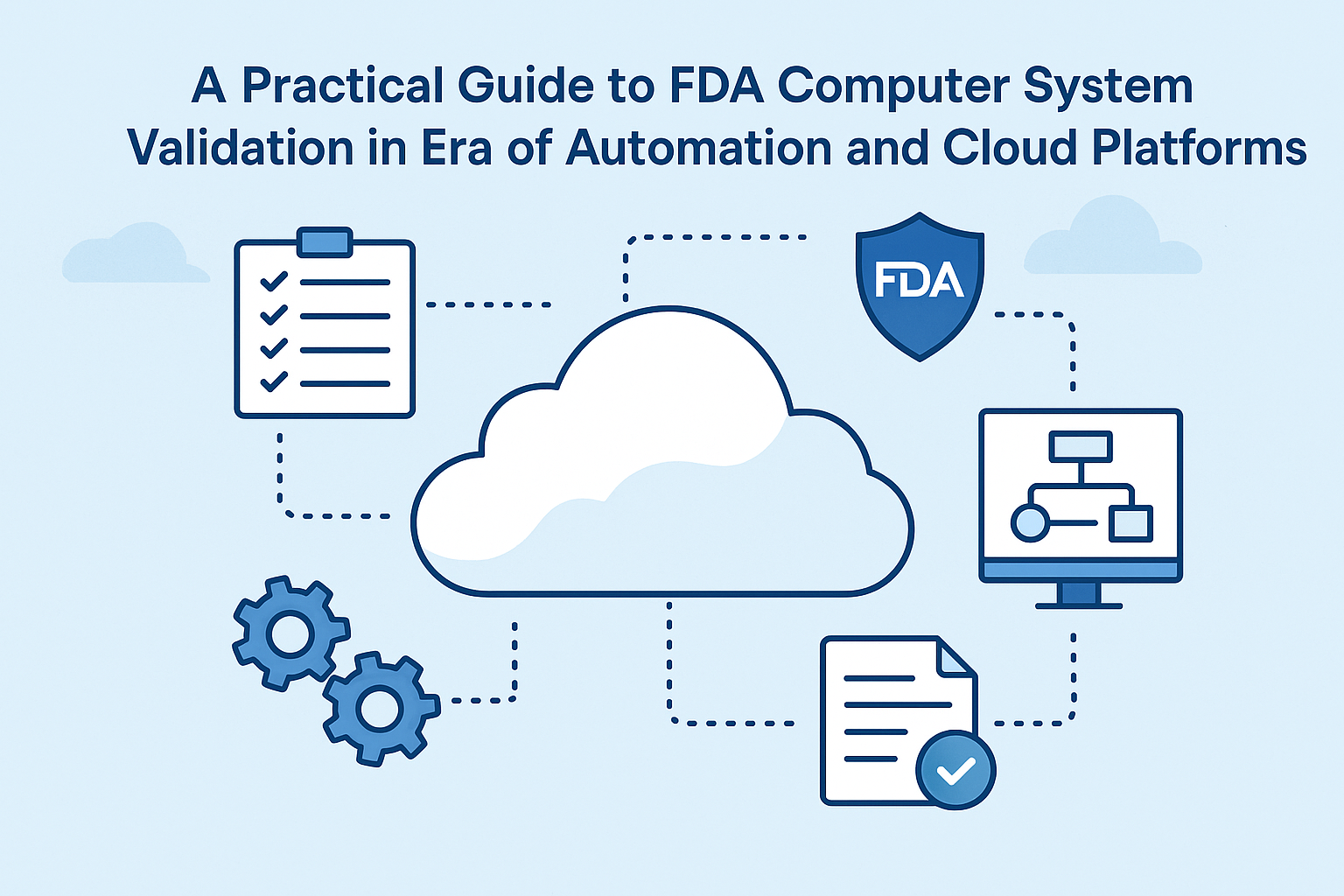
Updated January 2026
Technology has transformed. Newly implemented IT systems are now overwhelmingly cloud-first, rendering on-premise servers (and their associated maintenance costs) a relic of the past. This shift has enabled seamless upgrades, rapid deployments, and agile modifications to meet customer requirements, providing true end-to-end solutions across hardware and software.
While companies operating under strict regulations such as life sciences, food & beverages, and cosmetics were traditionally viewed as slow adopters, that narrative has changed. Today, these industries have revolutionized their IT landscapes, fully embracing cloud-based ecosystems to manage their digital processes.
The Regulatory Shift: From Catching Up to Leading the Way
Historically, validation approaches struggled to keep pace with technological speed. However, regulatory agencies have successfully bridged the gap between decades-old guidance and modern digital reality.
The industry has officially moved away from the outdated "test-it-all" mentality. Regulatory bodies no longer recommend testing every feature of a system in an "idiot-proof" protocol. Instead, the standard today is Computer Software Assurance (CSA), a risk-based approach that prioritizes critical thinking over exhaustive documentation.
Focusing on What Matters
In this modern framework, companies focus verification efforts specifically on key elements that impact patient safety, product quality, and the intended use of the software. By concentrating on high-risk items, organizations are ensuring safer products and higher system quality, as critical functions are tested more comprehensively, while low-risk features require less burdensome verification.
The FDA and the Era of Automation
The transition to CSA has been driven by clear direction from the FDA, most notably marked by the release of the CSA Draft Guidance in 2022. This shifted the industry focus from generating paper to generating value.
As Cisco Vicenty, CDRH Program Manager at the FDA, famously noted during the pivotal shift toward this model:
"The FDA supports and encourages the use of automation, information technology, and data solutions throughout the product life cycle... Automated systems provide manufacturers advantages for reducing or eliminating errors, increasing business value, optimizing resources, and reducing patient risk."
In 2026, this vision is a reality. Regulatory agencies globally have aligned with this thinking, and companies utilizing automated validation tools are not just "compliant"; they are competitive, efficient, and safer than ever before.
About Validify
Validify is a risk and validation management platform designed to provide customers with an advanced tool for IT risk assessment and software validation. The platform was designed to automate a significant part of the risk assessment maintenance to support continuous validation process, as well as automated and customizable template-based validation document generation. Validify also provides a built-in connector for the Salesforce Platform, providing real-time status of your Salesforce compliance and identifying changes in your org automatically.
About the author
Ido Raz is a Co-Founder and CEO of Validify, a cloud technology and Salesforce enthusiast, former CTO of a Salesforce application company and PMP certified. With years of experience in Salesforce, design & delivery of compliance solutions for regulated industries.
Want to hear more or book a demo? Click here




